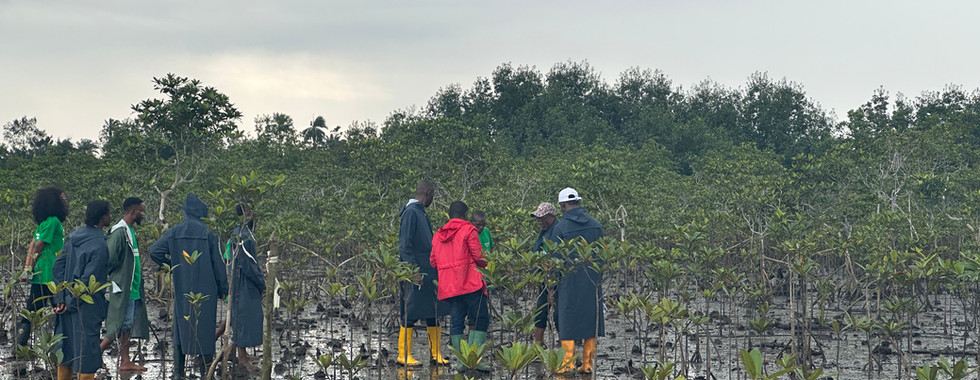Ongoing Independent Verification Confirms Impact of Niger Delta Mangrove Restoration
- FC-Newsteam
- Nov 11, 2025
- 2 min read
Updated: Dec 15, 2025
Auditors validate climate and community benefits of First Climate’s carbon removal project under Verra and CCB Standards in Nigeria
A recent verification visit has confirmed and quantified the impact of the Niger Delta Mangrove Restoration Project on both the climate and local communities, resulting in the restoration of hundreds of hectares of coastal mangroves and improving livelihoods across Nigeria’s Akwa Ibom and Rivers States.

The Niger Delta Mangrove Project, which started its mission of planting 1,000,000 mangroves per year back in 2021, has reached another significant milestone in an ongoing independent verification process under the Verified Carbon Standard (VCS) and Climate, Community & Biodiversity (CCB) Standards. Once completed, the verification will mark another key step toward the project’s first issuance of verified carbon credits and underscores its tangible contributions to climate action, biodiversity restoration, and community development.
During the visit, the First Climate team met with accredited third-party auditor (VVB) who independently confirmed that the project activities – including mangrove planting, monitoring, and community engagement – have been implemented as planned and are delivering high-quality carbon removals and social co-benefits. “We are pleased to see the incredible progress the project has made over the last months and years. With the help of our local partners, we’ve been able to scale the project significantly and confirm its impact with measurable and verified removals as well as concrete improvements of local livelihood alternatives,” said Wolfgang Brückner, Managing Director of First Climate Projektentwicklung, who oversees the management of the Niger Delta Mangrove Project.
💡Please click each image below to enlarge and read captions! |
During the visit, the verification team visited active project sites across Akwa Ibom and Rivers States, meeting with local communities, project partners, as well as traditional, state, and local officials. They reviewed planting records, monitoring data, and evidence of community participation, while conducting on-the-ground assessments of restored mangrove areas.
The auditors confirmed that the project has been implemented as described in the submitted project description, or PD, with discussions covering technical aspects and activities such as biomass measurement and soil carbon accounting, as well as evaluating how community members are engaged and benefit from the project activities. Constructive findings were shared to enhance documentation and strengthen future monitoring – an expected and valuable part of the verification process.
“This project is an outstanding example of how nature-based climate solutions – when locally led and scientifically grounded – can deliver meaningful results for both people and the planet,” said Nikita Skopincev, of First Climate’s project development team. “Being onsite with the auditor allowed us to demonstrate how each stage of our project setup – from seedling propagation to GIS-based monitoring – translates directly into verified carbon outcomes.”
As the project continues to progress, further updates will be shared across First Climate’s communication channels or visit the projet page here: Niger Delta Mangrove Project.






























